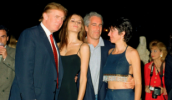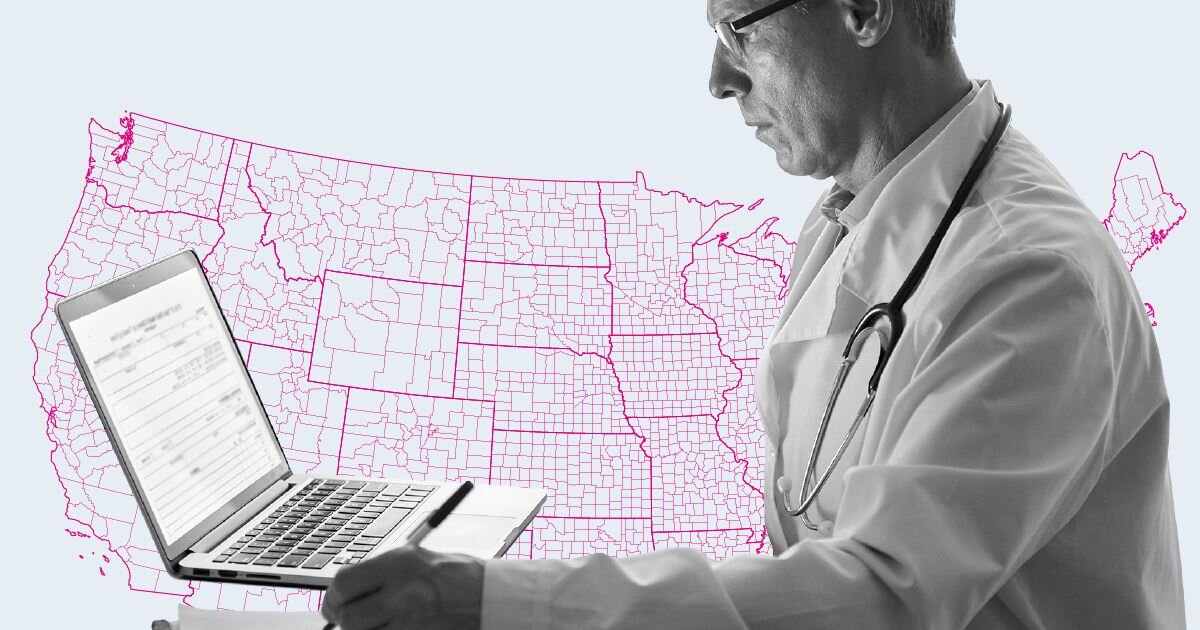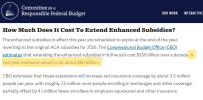Opinion:
President Trump’s promise to hand people tariff cash is absurd economics, but it is clever politics
President Donald Trump now says he wants to give away the government’s tariff revenues as a $2,000 check to almost everyone — or at least to
“low and middle income USA Citizens.”
But it’s not even three months since his administration was boasting that the same revenue was going to be used to
cut the federal government deficit by $4 trillion over the next 10 years.
And it’s not even two months since Trump was saying he wanted to use the money
to bail out farmers.
Go back far enough and you’ll see Trump, then a candidate running for a second term in the White House, saying he wanted to use the same tariff revenue to
eliminate income taxes and l
ower the cost of child care.
Meanwhile, if you go back to the middle of last week, you’ll see Trump administration lawyers telling the Supreme Court that the purpose of the tariffs
wasn’t to raise any money at all.
What all that means is that anyone hoping to get a $2,000 check is likely to be disappointed.
This $2,000 promise may be financially impossible, but it is politically very savvy. It is good politics.
To understand why, you need to follow the data from polling company Rasmussen, which is my go-to for Trump precisely because it leans Republican and is least likely to be distorted by any form of Trump Derangement Syndrome.
According to Rasmussen’s latest daily numbers, about
31% of voters still “strongly approve” of President Trump’s job performance. That number hit a low of 29% shortly after his “liberation day” tariff announcement in April. (For comparison, when Richard Nixon had to resign over Watergate in 1974, about 24% of voters said they still supported him). That’s Trump’s base — the core, the folks in red hats and “Gulf of America” T-shirts.
For them, Trump’s promise of $2,000 in free money is real — if only the darn Deep State, or the swamp, or the communists and crooks in Washington don’t stop him.
Just over a year ago, Tesla CEO Elon Musk was promising there was $2 trillion in free money to be had by eliminating “waste, fraud and abuse” in the federal budget.
After the 2024 election, Musk admitted the figure was far lower than that. Then in the spring, he backtracked further. Finally he left Washington, saying mysterious figures had stopped him from finding the money.
It is a general rule that people who believe in conspiracy theories cling to them like barnacles. Every single refutation of their conspiracy theory just proves that the conspiracy goes even further and deeper than they thought. Demonstrate that their conspiracy theory is, say, disproved by the law of gravity, and they will conclude … that Sir Isaac Newton was “in on it” too.
It is a fair bet that at least some of Trump’s base believe that the same money can be used for multiple different purposes, and that when he is thwarted it will be yet more proof of the Q-Anon or Deep State conspiracy, run from the hidden basement of a pizzeria in Washington, D.C.
Still, there’s no getting around the federal budget.
Last year, Social Security, Medicare, defense and debt interest in aggregate cost 84% of all federal tax revenues, including FICA. These are the facts.
But we live in an increasingly fragmented as well as polarized world. A 30% voting bloc is a minority. At the same time, it may also be a powerful plurality — especially if it stays motivated, and the other 70% is splintered into lots of different groups.
When Trump made this $2,000 promise, I took it as a sign that he thinks he might lose the tariff battle at the Supreme Court. If that happens, he will be able to tell his 30% voting bloc that they would have gotten $2,000 in free money but for the Deep State agents on the Supreme Court.
President Trump’s promise to hand people tariff cash is absurd economics, but it is clever politics.

www.marketwatch.com



 <--- That is not a brown Christmas Tree, hahaha
<--- That is not a brown Christmas Tree, hahaha




